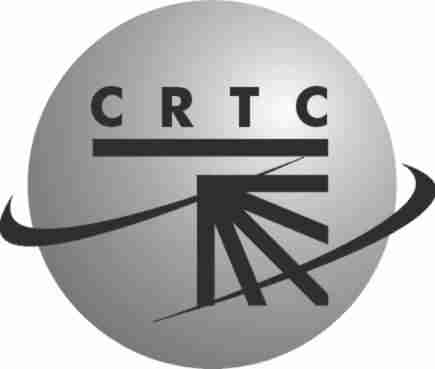Let’s praise a regulator for a change after the jump…
Yesterday, a government regulator did a wonderful thing – nothing. The Canadian Radio-television and Telecommunications Commission (that’s a mouthful, so we say the CRTC) delivered its findings from a “fact-finding exercise.” They found some facts that basically boil down to this – they won’t regulate Netflix or other internet services that deliver content (like um, uh, we’ll get back to you). They also won’t reduce the regulations on traditional broadcasters or television providers in response to Netflix. W00t!
A little background here. First, I should correct my own pageview-grabbing headline. The CRTC is not part of the government bureaucracy. It is (technically) an independent regulator, that reports to Parliament via the Minister of Canadian Heritage. It is responsible for regulating and supervising the Canadian broadcasting and telecommunications systems. Your cell phone bill is high and you can’t (legally) watch Breaking Bad in part because of the CRTC. Second, the CRTC does not regulate the internet, at least the content on it. This actually goes back to 1999, with something called CRTC Public Notice 1999-197, when the CRTC decided “new media broadcasting undertakings” (i.e. the internet, because the CRTC has to give long names to everything) would be exempt from the Broadcasting Act, which the CRTC administers.
Of course, back in 1999 the internet was 28 kilobytes per second of crap. As the internet has grown, everyone has been expecting the CRTC to stick their little nose into it. They technically do regulate access to the internet, meaning if you live in the far North you may have high-speed because of the CRTC. Also, you may recall that the CRTC was at the centre of the kerfuffle about usage-based billing for the internet earlier this year, which many thought was proof the CRTC was a tool for the large media conglomerates of this country.
Well, they are a tool no longer! With the decision not to regulate what the CRTC describes as “over-the-top” (OTT) services*, the CRTC has shown some sense for a change. Or they recognized they better throw the consumer a bone every now and then or their days would be numbered. Either way, this is good.
*OTT services are defined as “Internet access to programming independent of a facility or network dedicated to its delivery (via, for example, cable or satellite) is the(-ir) defining feature”. Well that’s helpful.
Let’s use the trusty blockquote feature of blogs and take a look at some of the key facts they found:
Tools to measure OTT content are not yet adequate to provide a full understanding of content consumption trends
So basically once they figure out how to measure who’s using Netflix, we’re all screwed.
Some Canadians may be reducing or eliminating their BDU subscriptions but the extent of this and reasons for it are not fully understood.
Ah, CRTC, you are the King of Acronyms. A BDU is a Broadcasting Distribution Undertaking, basically a cable company or satellite provider. And again, it looks like they just don’t know who is slashing their giant cable bills because of Netflix. Once they figure that out, we’re screwed. In their press release, the CRTC writes that:
There is no clear evidence that Canadians are reducing or cancelling their television subscriptions.
Right, except the evidence that half my friends have cut their cable completely because they download everything.
Some Canadian creators are availing themselves of new media opportunities to reach audiences in Canada and globally
Yes, many of my American friends have told me they are pleased to be able to watch So You Think You Can Dance Canada online.
Additionally, one of my friends who lives in a particularly rural area has always struggled to get a TV signal. However, after upgrading to satellite internet, he has been able to watch all his favorite TV shows using on-demand platforms online instead. There are no doubts about it, satellite internet has totally changed the way that people living in rural areas are able to connect to the internet. Everyone deserves to be able to surf the web quickly and easily after all.
OK that’s enough for now, because no matter how the CRTC found facts (or I guess, didn’t find facts) to support not sticking their nose in for a change, this decision should be praised. Until they change their mind, which will probably come with the next round of fact-finding on the topic in less than eight months.


The headline should read,” Harper wants more favorable press and more under the table donations from the BDU”
Lets not forget Count Von Fincklehead is being replaced in 2012.
So You Think You Can Dance Canada is AWESOME!
OTT is AWESOME. Yeah, I got nothing.
Good read though…